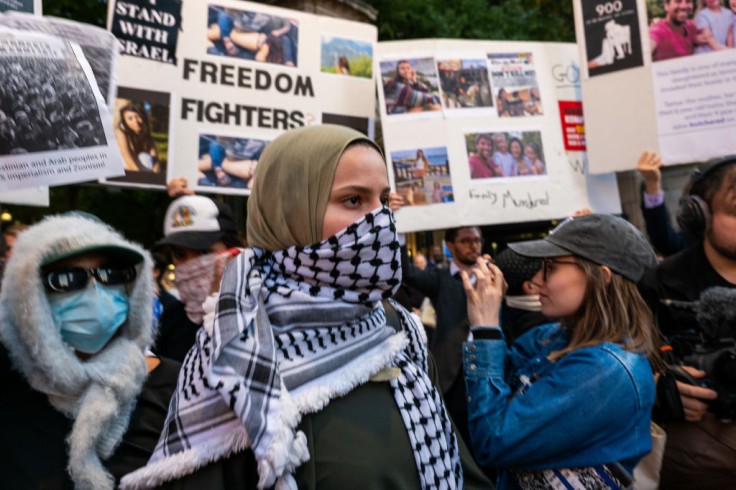
Columbia University has taken measures to temporarily suspend two student groups, Students for Justice in Palestine (SJP) and Jewish Voice for Peace (JVP), following campus-wide protests related to the Israel-Hamas conflict. Gerald Rosberg, Columbia's Vice President and Chair of the Campus Safety Committee, announced the suspension, effective until the commencement of the next term, citing concerns about unauthorized events that included "threatening rhetoric and intimidation."
During this suspension period, both SJP and JVP will be ineligible to host events on campus and receive university funding. The decision, rooted in repeated violations of university policies, requires the groups to demonstrate a commitment to compliance with university guidelines for reinstatement.
The protests, marked by pro-Palestinian groups projecting slogans and clashes between factions supporting different sides of the Israel-Hamas conflict, have stirred broader political discussions. At Columbia, both SJP and JVP, identified as anti-Zionist groups, face accusations from university authorities of endangering fellow students.
Rosberg emphasized the decision's basis, stating, "This decision was made after the two groups repeatedly violated University policies related to holding campus events, culminating in an unauthorized event Thursday afternoon that proceeded despite warnings and included threatening rhetoric and intimidation."
Beyond the campus, the protests have become a noteworthy political topic, attracting attention from candidates in the Republican presidential nomination race. During a recent GOP primary debate, candidates accused the groups of "siding with Hamas," raised concerns about potential deportation of participants on student visas, and drew comparisons to the Ku Klux Klan.
Students for Justice in Palestine, one of the suspended groups, has faced bans on other campuses, including a complete ban at Brandeis University in Massachusetts. Additionally, Florida Governor Ron DeSantis, a Republican presidential hopeful, recently directed public universities in the state to shut down chapters of SJP last month. The unfolding developments underscore the complex intersection of academic freedom, campus safety, and geopolitical tensions within university settings.
© 2026 University Herald, All rights reserved. Do not reproduce without permission.








